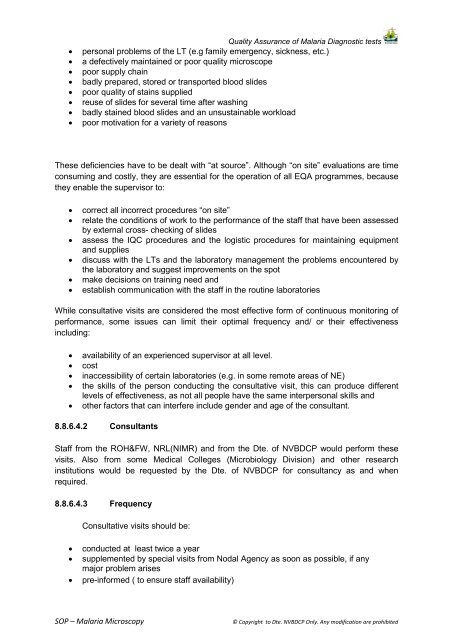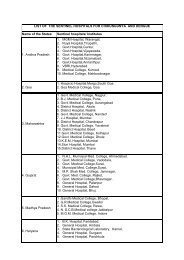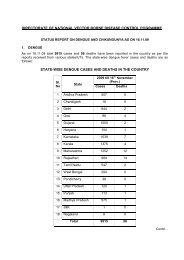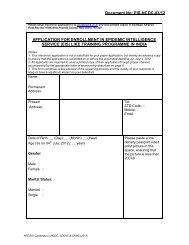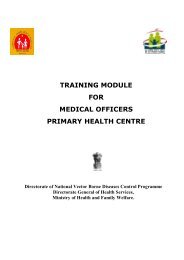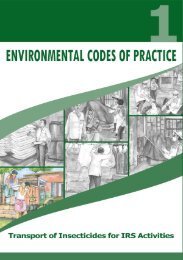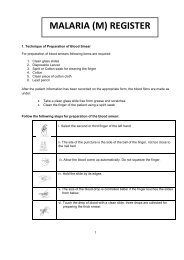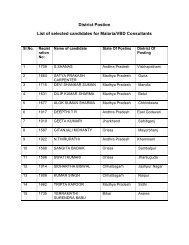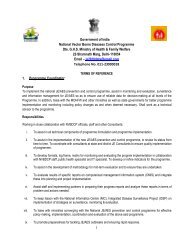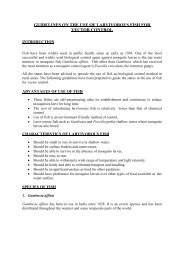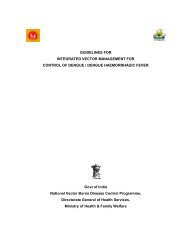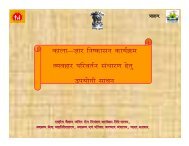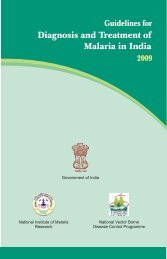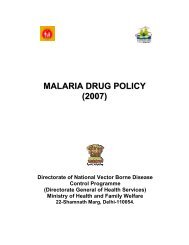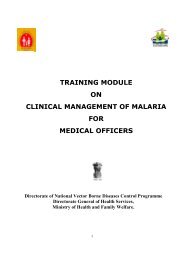SOP â Malaria Microscopy - NVBDCP
SOP â Malaria Microscopy - NVBDCP
SOP â Malaria Microscopy - NVBDCP
You also want an ePaper? Increase the reach of your titles
YUMPU automatically turns print PDFs into web optimized ePapers that Google loves.
Quality Assurance of <strong>Malaria</strong> Diagnostic tests• personal problems of the LT (e.g family emergency, sickness, etc.)• a defectively maintained or poor quality microscope• poor supply chain• badly prepared, stored or transported blood slides• poor quality of stains supplied• reuse of slides for several time after washing• badly stained blood slides and an unsustainable workload• poor motivation for a variety of reasonsThese deficiencies have to be dealt with “at source”. Although “on site” evaluations are timeconsuming and costly, they are essential for the operation of all EQA programmes, becausethey enable the supervisor to:• correct all incorrect procedures “on site”• relate the conditions of work to the performance of the staff that have been assessedby external cross- checking of slides• assess the IQC procedures and the logistic procedures for maintaining equipmentand supplies• discuss with the LTs and the laboratory management the problems encountered bythe laboratory and suggest improvements on the spot• make decisions on training need and• establish communication with the staff in the routine laboratoriesWhile consultative visits are considered the most effective form of continuous monitoring ofperformance, some issues can limit their optimal frequency and/ or their effectivenessincluding:• availability of an experienced supervisor at all level.• cost• inaccessibility of certain laboratories (e.g. in some remote areas of NE)• the skills of the person conducting the consultative visit, this can produce differentlevels of effectiveness, as not all people have the same interpersonal skills and• other factors that can interfere include gender and age of the consultant.8.8.6.4.2 ConsultantsStaff from the ROH&FW, NRL(NIMR) and from the Dte. of <strong>NVBDCP</strong> would perform thesevisits. Also from some Medical Colleges (Microbiology Division) and other researchinstitutions would be requested by the Dte. of <strong>NVBDCP</strong> for consultancy as and whenrequired.8.8.6.4.3 FrequencyConsultative visits should be:• conducted at least twice a year• supplemented by special visits from Nodal Agency as soon as possible, if anymajor problem arises• pre-informed ( to ensure staff availability)<strong>SOP</strong> – <strong>Malaria</strong> <strong>Microscopy</strong>© Copyright to Dte. <strong>NVBDCP</strong> Only. Any modification are prohibited


